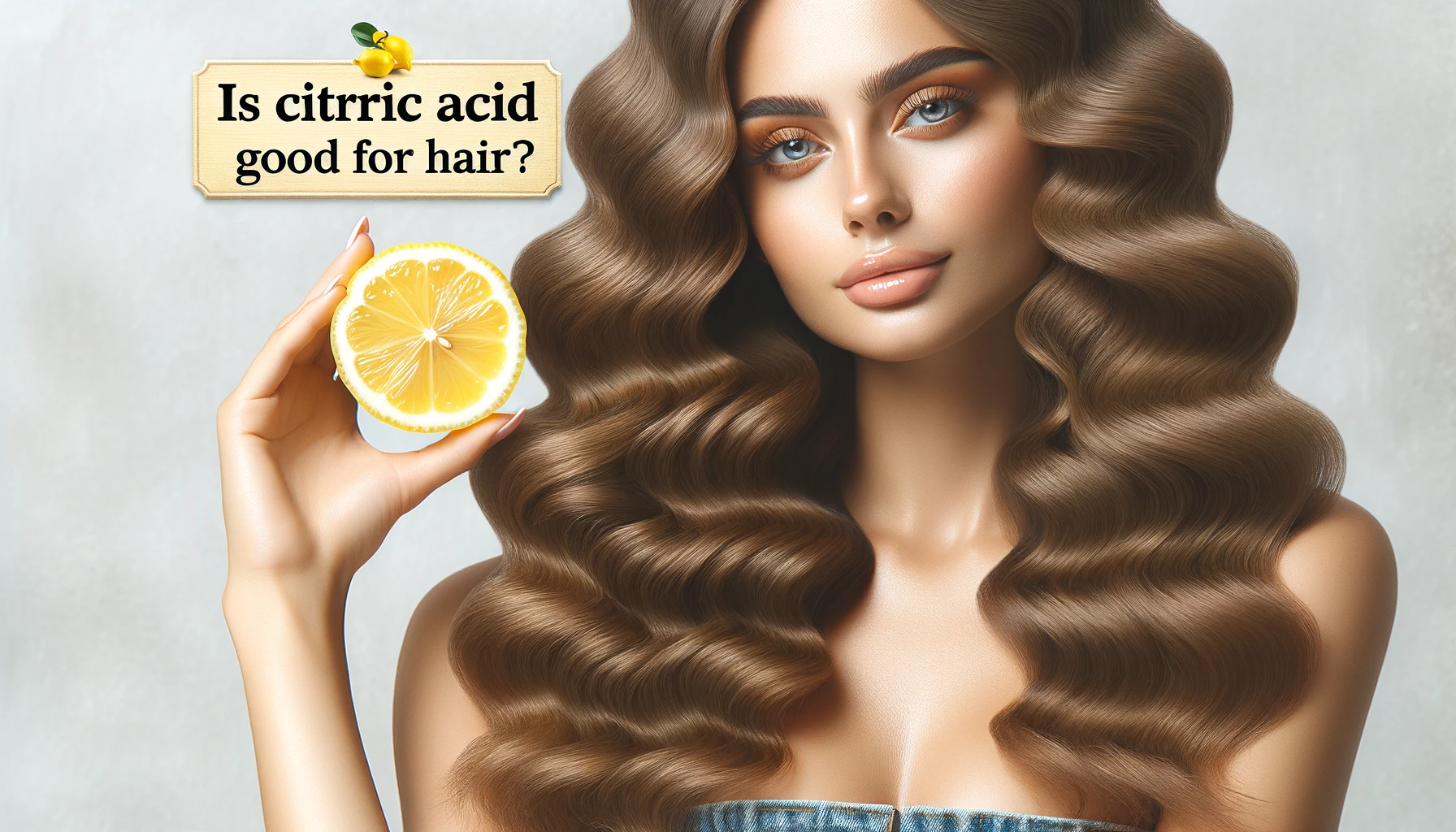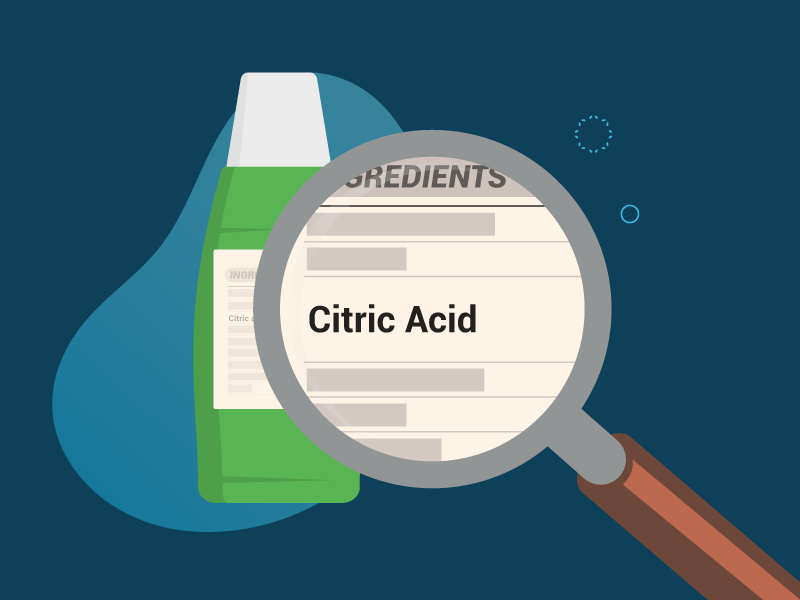Citric Acid For Hair: Does It Really Help? + Benefits
Does the secret to vibrant, healthy hair lie hidden in the humble lemon? Citric acid, a common ingredient found in everything from your morning juice to your hair care products, is making waves in the beauty world. The truth is, citric acid possesses a remarkable ability to alter the structure and appearance of your hair, and understanding how it works is the key to unlocking its potential for a more lustrous mane.
Citric acid, a naturally occurring alpha-hydroxy acid (AHA), is derived from citrus fruits like lemons and limes. Its primary function is that of a pH adjuster. In hair care, this translates into a potent agent that can significantly impact the condition of your locks. Its not just about the immediate effects either; the way citric acid interacts with your hair can have long-term consequences, both positive and negative. Let's unravel the science behind this fascinating compound and explore its influence on your hair health, from its impact on the cuticle to its effects on color and overall texture.
Before we delve deeper, let's clarify what we're examining. Citric acid is more than just a trendy ingredient; it's a powerful chemical agent. It's a strong acid, and as such, it interacts with your hair on a molecular level. This interaction can lead to a variety of changes, from the simple cleansing of the hair to altering its protein structure. Understanding these interactions is important. Incorrect use can lead to unintended consequences, while appropriate application can unlock impressive benefits.
The fundamental structure of hair involves the cuticle, cortex, and medulla. The cuticle, the outermost layer, is composed of overlapping scales that protect the inner cortex. The cortex is where the hair's pigment, strength, and elasticity reside. The medulla is the innermost core, which is sometimes absent. Citric acid's effects are mainly centered on the cuticle. The acids low pH can cause the cuticles to tighten, creating a smoother, more reflective surface. This is one of the most sought-after benefits for anyone seeking shinier, more manageable hair.
The pH of your hair is a crucial factor in determining its overall health and appearance. Hair naturally exists in a slightly acidic state. This slightly acidic environment helps to keep the cuticle scales closed, which is vital for several reasons. Closed cuticles reflect light, contributing to shine. They also help to trap moisture within the hair shaft, preventing dryness and breakage. Citric acid, when used correctly, can help to maintain or even enhance this slightly acidic environment, promoting healthier hair.
Citric acid is often included in hair care products to balance the pH levels of the formulation. For example, shampoos or conditioners with a slightly alkaline pH can leave the hair feeling rough and the cuticles open. By adding citric acid, manufacturers can adjust the pH to a more acidic level, thereby smoothing the cuticles. This process enhances the product's performance. It helps in cleansing, detangling, and moisturizing, ultimately contributing to the overall health and appearance of the hair.
One of the most appealing benefits of using citric acid on your hair is its ability to enhance shine. The smoother cuticle created by citric acid reflects light more efficiently, resulting in a noticeable increase in shine. Many people with dull, lackluster hair find that using citric acid-containing products, or doing a citric acid rinse, helps to restore their hairs natural gloss. The result is hair that looks healthier, more vibrant, and more alive.
Citric acid also acts as a chelating agent. This means it can bind to minerals and other impurities that accumulate on the hair. Hard water, for example, can deposit minerals like calcium and magnesium, leading to build-up that makes hair feel heavy and dull. Citric acid helps to remove these deposits, which can contribute to a cleaner scalp and hair. The removal of mineral build-up can also help other hair care products, such as conditioners and treatments, to penetrate the hair shaft more effectively, which can boost their effectiveness.
Beyond its immediate aesthetic effects, citric acid can also influence the overall structure of your hair. By altering the way the cuticle scales sit, citric acid can impact the hair's porosity, which refers to its ability to absorb and retain moisture. Low porosity hair tends to repel moisture, while high porosity hair absorbs moisture quickly but also loses it rapidly. Citric acid can help to regulate porosity, making the hair more balanced. This balance is vital for maintaining healthy, hydrated hair that is less prone to breakage.
Now, let's address the subject of color-treated hair. Citric acid is a double-edged sword for color-treated hair. On the one hand, it can brighten hair and remove some product build-up that can dull color. However, the same properties that brighten can also potentially fade artificial color. The extent of the color fading depends on the concentration of citric acid, the frequency of use, and the type of hair dye used. Therefore, its critical to use citric acid with caution on color-treated hair. When in doubt, consult a professional hairstylist.
Citric acid can play a role in lightening hair, primarily in combination with other ingredients, like sunshine or heat. This is because it interacts with the melanin, the pigment responsible for hair color. However, the lightening effect is usually gradual and subtle compared to traditional hair bleaching methods. The degree to which citric acid lightens hair depends on factors such as hair type, the concentration of citric acid, and the exposure to sunlight or heat.
When using citric acid on your hair, it is imperative to take certain precautions to avoid potential damage. First and foremost, do not use concentrated citric acid directly on your hair, especially if you are not familiar with its effects. Always dilute citric acid with water or use products specifically formulated for hair care. Second, never leave citric acid on your hair for an extended period. The longer it sits, the greater the risk of damage. Finally, perform a strand test before applying any new citric acid treatment to your entire head. This will help you evaluate how your hair will react to the acid and prevent unwanted outcomes.
For those who want to experiment with citric acid, there are several methods to incorporate it into their hair care routines. One option is to use hair care products that contain citric acid. Many shampoos, conditioners, and hair masks contain this ingredient, providing a balanced approach to its use. Another approach is to create a citric acid rinse. This involves diluting citric acid powder or lemon juice in water and using it as a final rinse after shampooing and conditioning. Finally, you can add a small amount of citric acid to your regular hair mask for an extra boost of shine and cleansing.
There is a distinction between citric acid and lemon juice, though both contain citric acid. Lemon juice, being a natural product, contains other compounds in addition to citric acid. While it can be used, it is often more acidic and less predictable than using citric acid. Pre-formulated hair products and citric acid powder are generally better options because you can control the concentration and pH levels more accurately.
The use of citric acid in hair care can be a beneficial practice. By understanding its properties, taking necessary precautions, and using it in moderation, you can potentially unlock its benefits for shinier, healthier hair. Nevertheless, it's crucial to be aware of its potential downsides, especially for color-treated hair. Overall, approach citric acid with informed caution, and your hair may well thank you for it.



